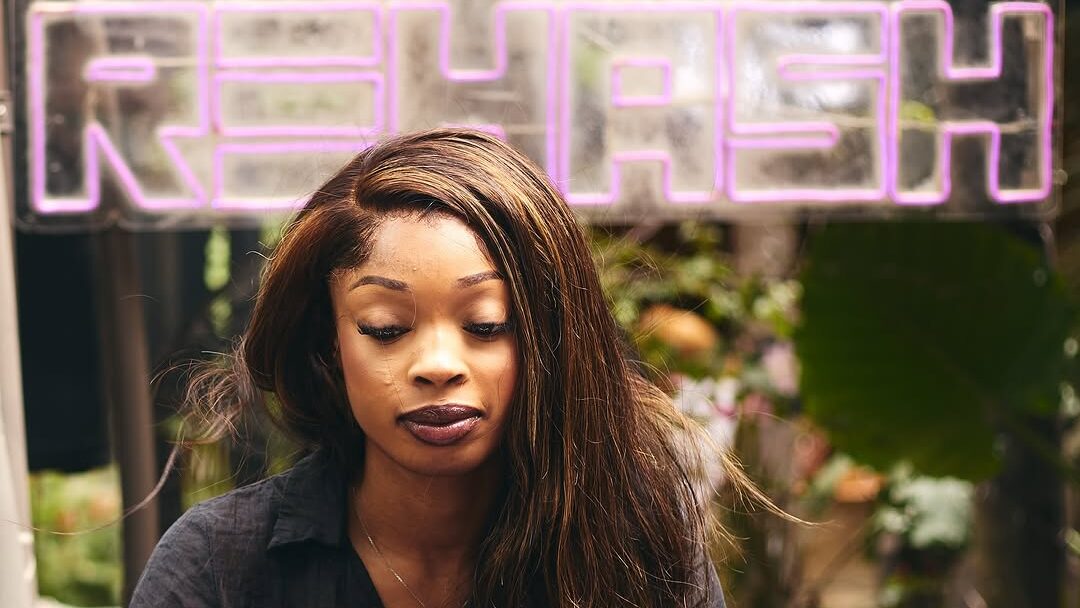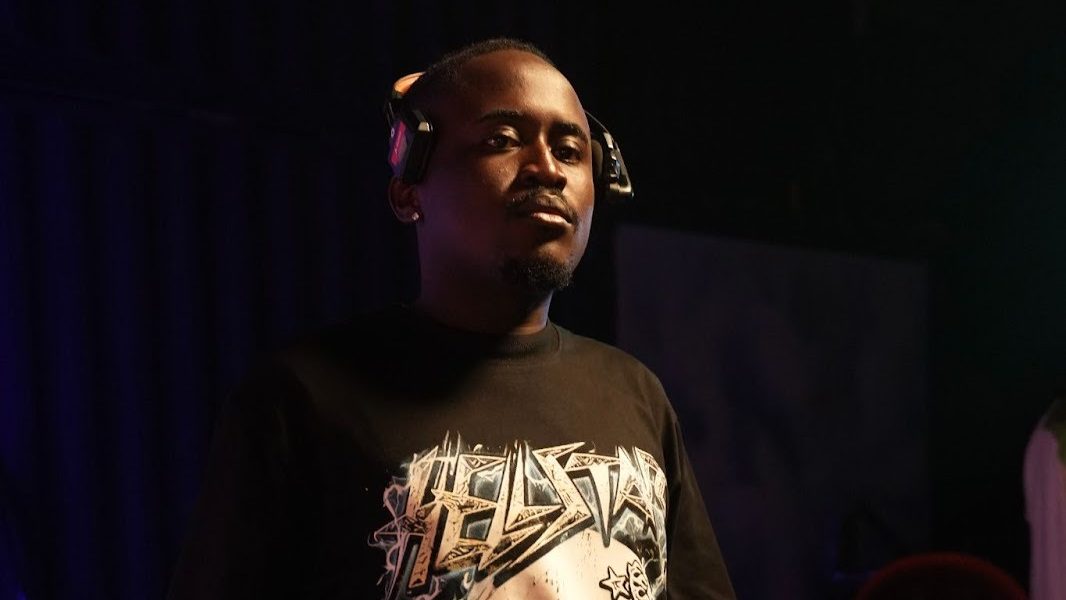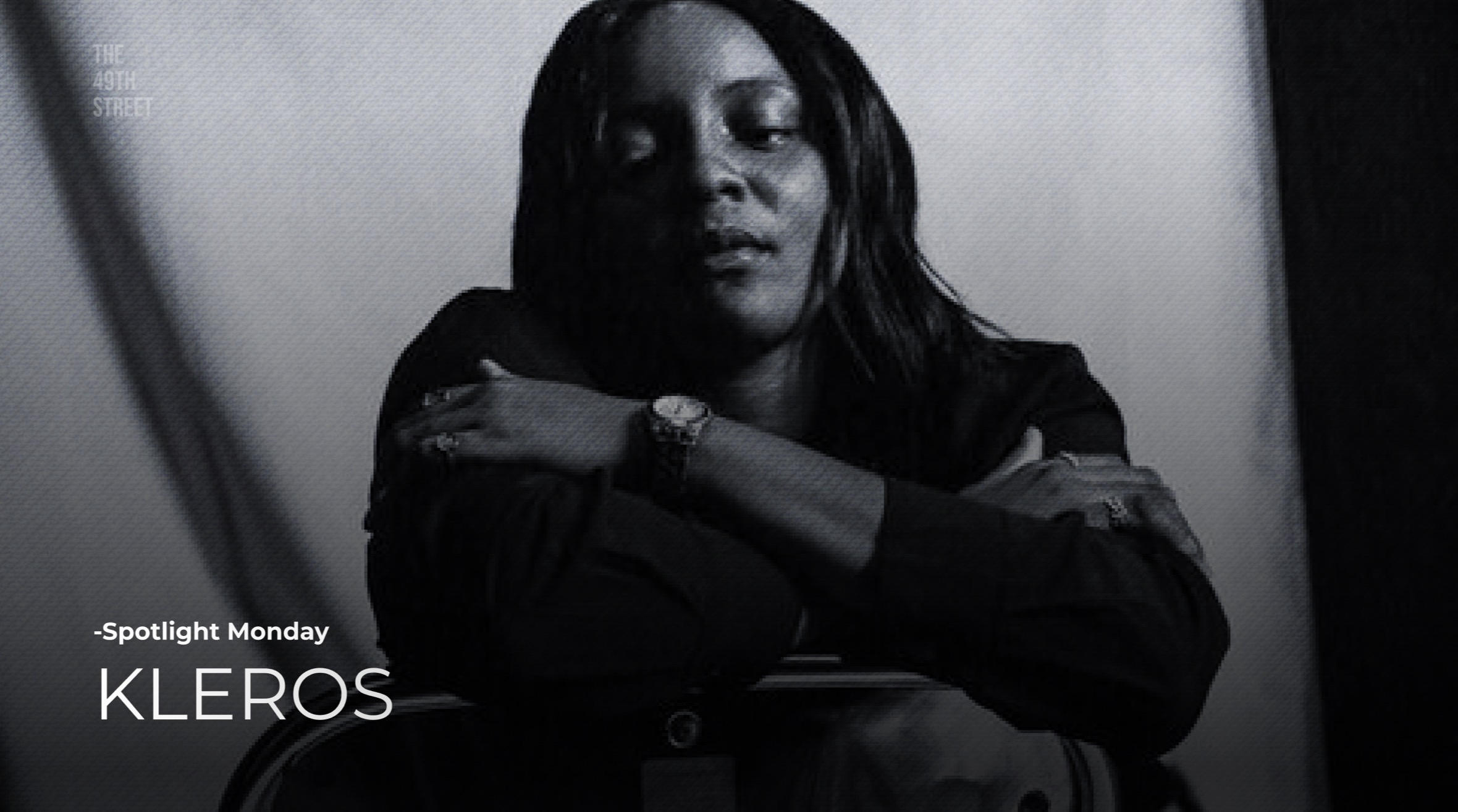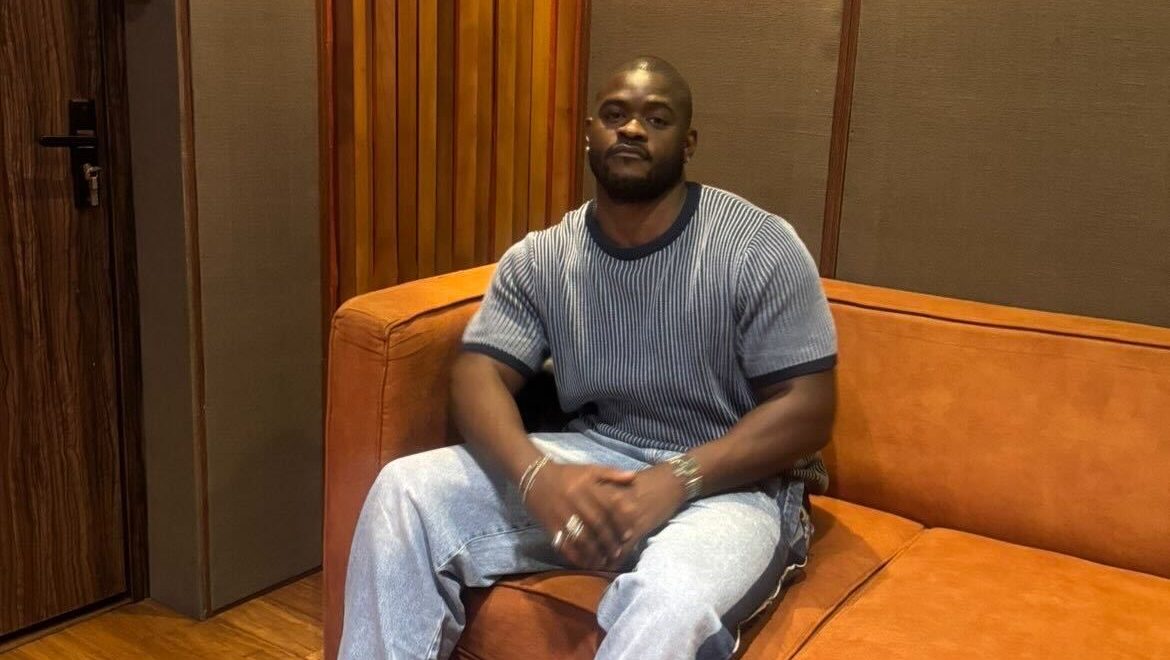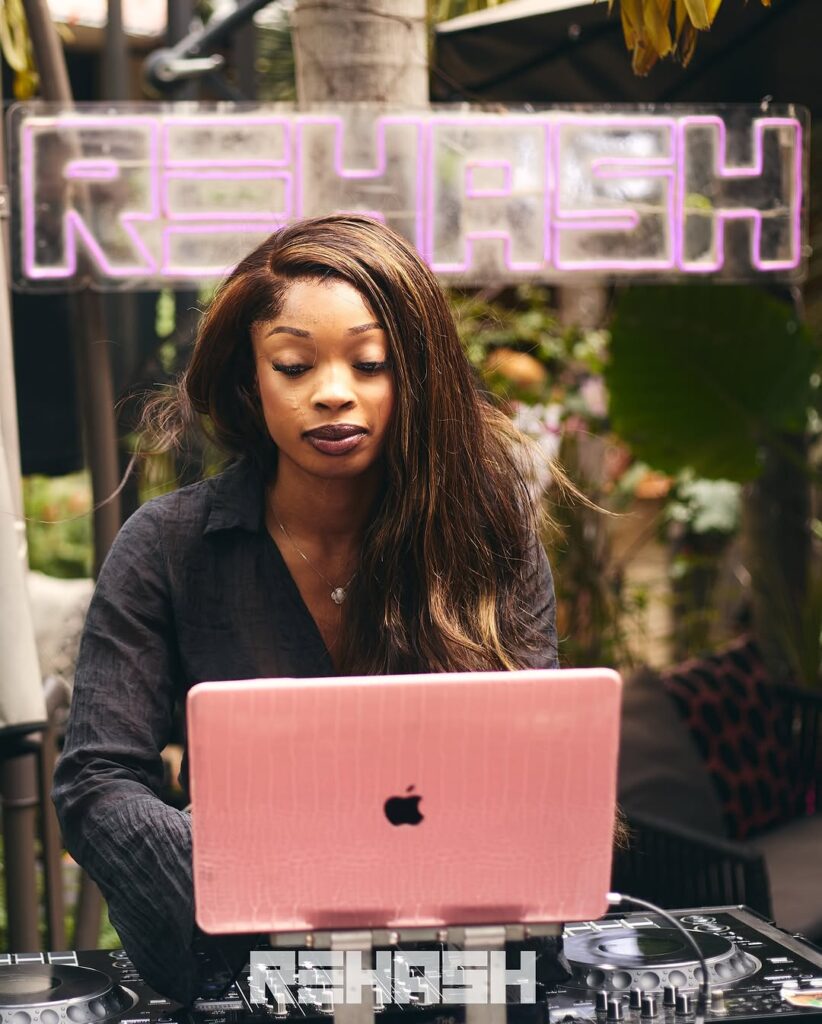
The spark for REHASH was lit by a striking conversation between its co-founders, Titi Adesanya and Tobiloba Tejumola (TEJ), at Peacocks in Lekki on a summer afternoon two years ago. Adesanya turned to Tejumola upon entering and said, “You know this place would be amazing for a day party.” He replied, “Yup, it would.” And she followed with an ecstatic “Let’s do it!” Thus, the rough sketch for REHASH—named after the playlist they curated for Soko Afrika every year, which doubled as a sonic yearbook—was formed.
Adesanya admits to birthing REHASH out of selfish reasons. A true lark, when the clock strikes 9, she is out like a light or already winding down. She had experienced thrilling day parties and brunches in different parts of the world—the kinds where mama calls at Sunsets, and she wanted to bring that experience to Lagos.
Alongside that desire for daytime fun was the boredom she felt hovered over Lagos nightlife each time she stepped out. The playlists were worn out, but as a music addict, she knew there could be so much more. This lack moved REHASH from just a daytime party to a sonic playground for emerging DJs.
49th Street sat with Titi Adesanya to discuss the evolution of REHASH, sonic experimentations, and future plans.
What gap in the music or nightlife scene did you notice that REHASH was created to fill, particularly for emerging DJs? And how intentional was the focus on giving them a space to grow their sonic identity?
Hmmm, nightlife in Lagos started to feel…predictable. Going out meant hearing the same playlist over and over again until it felt like background noise. Obviously, we know there’s more out there—more incredible songs, more genres worth revisiting or discovering for the first time. So, we created REHASH as a space to unearth those sounds and celebrate them loudly. We wanted people to see that the vibe existed beyond the mainstream—that groove could come from unexpected places.
For DJs, REHASH became a playground. Each edition is themed, and we’re intentional about that. It gives them something to sink their teeth into. A DJ worth their salt will research, dig deep, and prepare a unique set that tells a story. That process helps them rediscover sounds they’d forgotten they loved—or unlock entirely new sonic directions. It’s as much an exercise in identity as it is in performance.
Honestly, one of the biggest gaps we were trying to fill was simply daytime fun. Something for the people who thrive in the day. It was that simple.
How do you select DJs to perform at REHASH, and what do you look for in terms of style, growth, or experimentation?
It’s evolved over time. In the beginning, we worked closely with Spaggy—our first-ever and longest-running resident DJ. He was really instrumental to the growth of REHASH in its early days; he worked with us to bring the themes of each edition to life, and he did it with such intention.
As we grew, we started introducing guest DJs—usually one person who naturally fit the theme of that edition. Then the community started to get involved: we’d get recommendations from people who had attended past editions, or DJs would reach out directly when a new theme was announced, sending in mixes that showed they were already playing in that direction.
It has now become instinctive. We’re very clear about what each edition is about—sonically and emotionally—and we think people respect that. Even when a theme might feel a bit “out there”, we encourage DJs to get creative. Ultimately, we look for DJs who are open: open to experimentation, to stretching their sound, and to honouring a theme without losing themselves in it. Growth happens in that space.
Can you share the story of a DJ who performed at REHASH and has gone on to make significant strides in their career? What does that say about the kind of platform REHASH has become?
Honestly, our entire community is growing before our eyes, and it’s been beautiful to witness.
We’d never claim credit for anyone’s success, but it’s been an honour to be part of the journey for DJs like Ifeme C.S., Farati, St Taj, Axara, and Shmurda, just to name a few.
REHASH has always been a space where DJs are encouraged to explore, take risks, and connect with a crowd in a way that’s not typical of most gigs. We think what that says about REHASH is that it’s become more than just a party—it’s a testing ground, a launchpad, and a safe space to play outside the lines.
How has the vibe or crowd at REHASH evolved since the first edition, and what role do you think the audience plays in shaping a DJ’s growth here?
The vibe has grown beautifully. What started off as a small group of friends and curious music lovers has now become this really warm, open, and musically adventurous community. People come ready to listen, to dance, and to be surprised. That kind of energy is rare, and it’s everything.
The audience at REHASH plays a huge role in shaping a DJ’s growth. When DJs step into our space, they’re not just playing to a crowd; they’re in conversation with it. The REHASH crowd gives feedback in real time, and that responsiveness gives DJs the freedom to experiment and encourages them to go deeper with their selections. Over time, that back-and-forth between DJ and audience becomes a kind of alchemy, and that’s where the magic of REHASH really lives.
How do you balance offering DJs the freedom to experiment while still keeping the energy right for a day party crowd?
Risk, trust, and conversations. We’re music heads first, so by the time a DJ plays REHASH, we’ve either experienced them ourselves or they’ve come highly recommended by someone whose taste we trust. That gives us a baseline confidence in their instincts. We also talk to our DJs ahead of time about the theme, the vibe we’re curating, and the arc of the day. Because REHASH is structured as a day party, there’s room to build.
Everyone doesn’t have to come in guns blazing. There’s space to warm up, take sonic detours, and still bring it home when it’s time. We encourage experimentation, but with context. If you’re going to take risks, make them intentional. And most importantly, read the room. So it’s a balance between creative freedom and emotional intelligence. And when a DJ gets that right, the result is unforgettable.
What has surprised you most about how REHASH has evolved, either in terms of audience, the community it’s built, or the music itself?
Probably the impact we’ve had on the community. Seeing day parties and hangouts popping up more regularly now—it’s surreal. When we started REHASH, we were simply trying to shift the dynamic and outlook of partying, especially for people who, like us, love music but don’t want to wait till 11 p.m. to enjoy it.
We didn’t know it would spark this kind of ripple effect, but REHASH has shown people that there’s room for more intentional, feel-good, musically rich experiences.
What’s next for REHASH? Are there plans to expand the format, collaborate with other collectives, or spotlight new genres?
Evolution, always. We’re constantly looking for ways to stretch what REHASH can be—whether that’s through partnerships, new formats, or fresh locations. Collaborating with other collectives is definitely on our radar, especially if it helps amplify the vibe and values we’ve been building from day one. As for genres, that’s already baked into our DNA. Every edition is a new soundscape, a different mood.
So exploring and spotlighting new genres isn’t just a plan—it’s a given. The goal is to keep surprising people, keep deepening the experience, and keep creating space for music lovers and DJs to meet somewhere unexpected.

